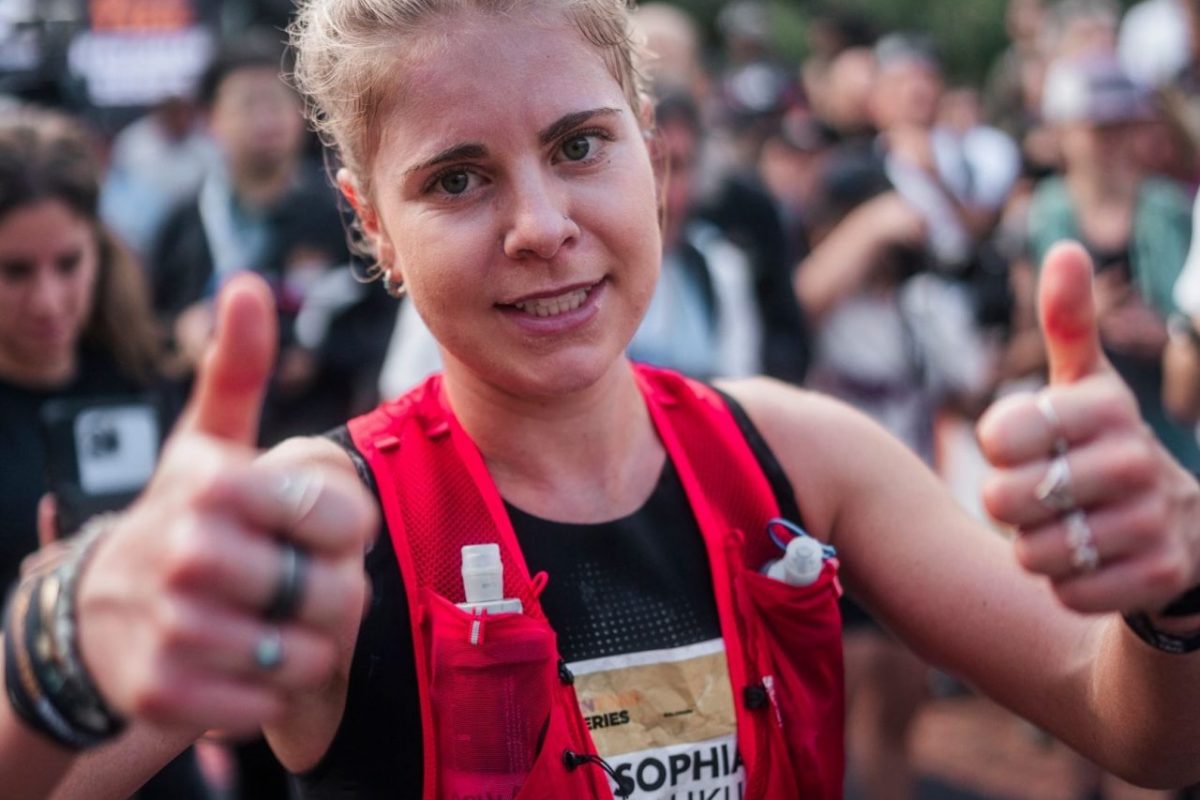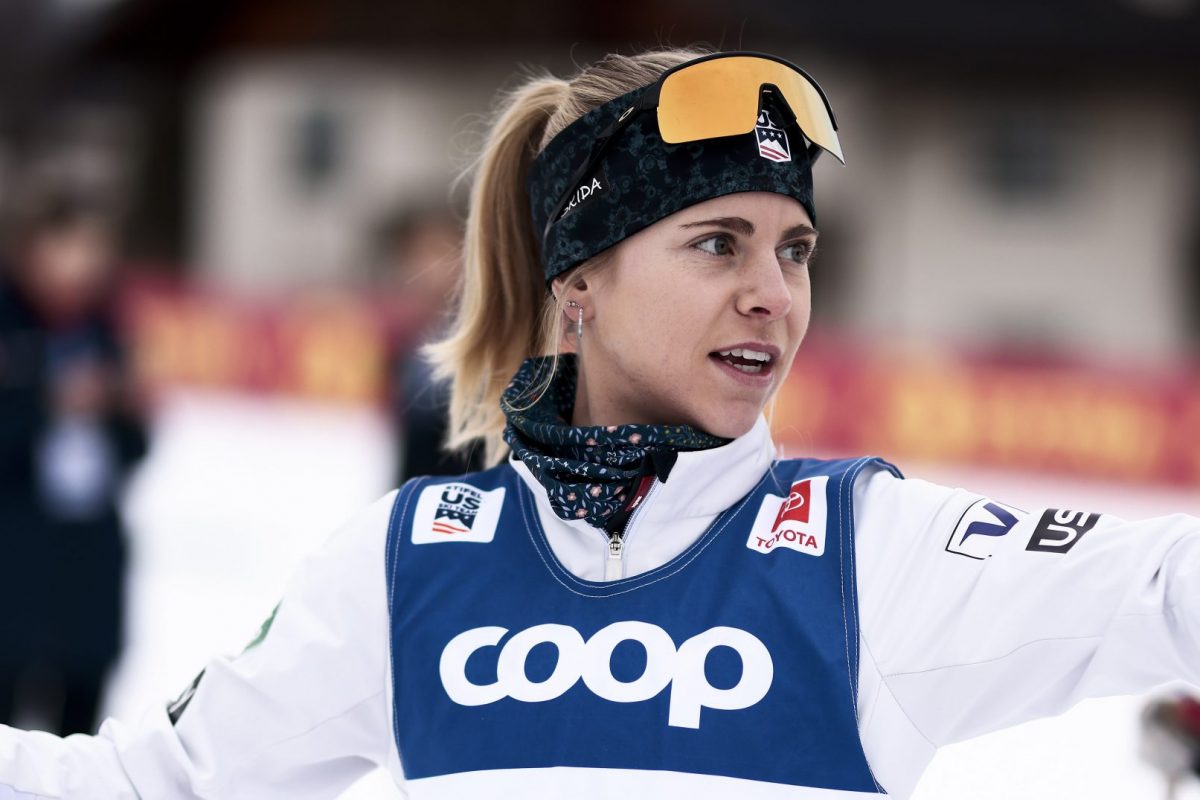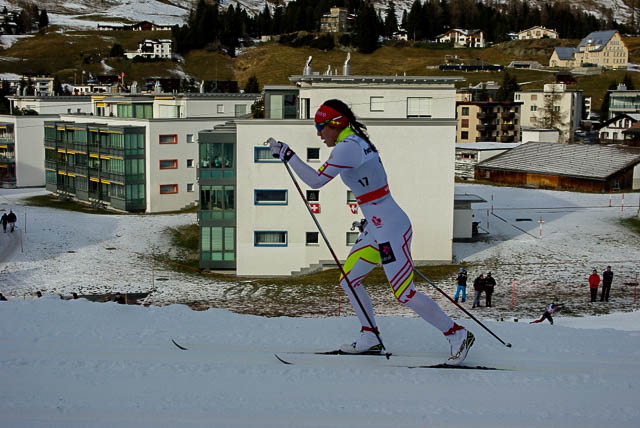
No stranger to top World Cup results, Canadian Alex Harvey still managed to break new personal ground on Saturday, earning his first top-30 in a distance race in Davos, Switzerland, where he was 17th and 1 minute, 5.8 seconds behind Norwegian winner Martin Johnsrud Sundby in the 15-kilometer classic individual start.
And in another first, Emily Nishikawa, Canada’s sole female entrant in the 10 k classic, placed 29th, 2:31.9 behind Norwegian winner Therese Johaug, for a career best and first time into the World Cup points.
The 5 k loop — largely made of snow trucked-in from the nearby mountains — is known on the World Cup circuit for a lack of steep hills. For the men, this created a dilemma — skate or classic skis? Most went with classic, though Harvey was not so sure of his decision.

“It was [a good race], but maybe I should have gone on skate skis,” Harvey told FasterSkier’s on-site reporter Chelsea Little after the race.
With classic skis, Harvey explained that he did not gain any time on Switzerland’s Dario Cologna, who used skate skis en route to finishing third, on the course’s featured climb: the Cologna-Stutz. Theoretically, classic skis should have been faster on the uphills.
“I wasn’t even faster on the uphill. I was with him at the top of the downhill,” Harvey said. “He dropped me, and I was pushing super hard on the double pole. So I caught back up on this last little rise, but then instantly he dropped me again.
“But [to use skate skis in this race] you have to be super strong in the arms,” he continued, suggesting that he was unsure that skate skis were a good idea. “I just didn’t think of it. That was clever of [Cologna] and [Norway’s Petter Northug]. I just saw Petter leading on skate skis, I was like,’Oh, maybe we should have thought about it.’ ”
For Canada’s second man, Devon Kershaw, who just missed the points in 32nd (+1:45.5), there was no doubt about whether or not to use skate skis.
“No. That’s insanity. That’s crazy. Absolutely not. I’m not strong enough for that, no way,” he said.
Kershaw called his first two laps “great,” but said he struggled on the third lap.
“Things got really, really difficult on the Cologna-Stutz,” Kershaw said. “That climb, there things got really really ugly for me. So that’s too bad because it was a good race until then.”
Overall, he was pleased with his performance, given that he did not get any significant help in the form of skiing on anyone else’s tails during the race. At the end of the second lap, Canada’s World Cup coach Tor-Arne Hetland shouted to Kershaw, “This is the perfect ride!” as Kershaw pushed to get behind Norway’s Pål Golberg.
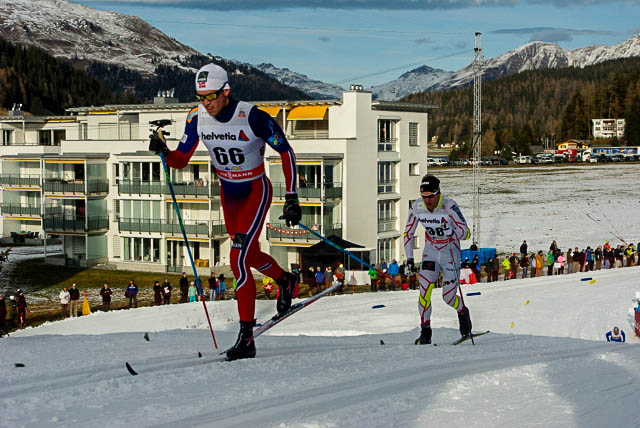
“That ride was awful, because he died,” Kershaw said. “He dropped me a little bit and then he just completely exploded and I dropped him easily, so that wasn’t a ride. He was only ahead of me for about 2 k. So that didn’t help. No rides.”
Golberg did not finish.
At the end of the day, Kershaw reflected that he started conservatively according to plan.
“I’m just not in my top shape right now; I can’t hold it,” he said. “But you know, it was a difficult day. I did it all by myself, no rides whatsoever. It was hard.
“It wasn’t great, but it wasn’t bad. It was just solid,” he added.
If Harvey was uncertain of whether he made the right ski choice, and Kershaw was grudgingly satisfied with his race, Nishikawa had no such reservations about her career-best World Cup result:
“So happy!” she exclaimed in a Skype interview. “This has been a big goal for me for a while now. I’ve been close a few times, but to actually do it feels really good!”
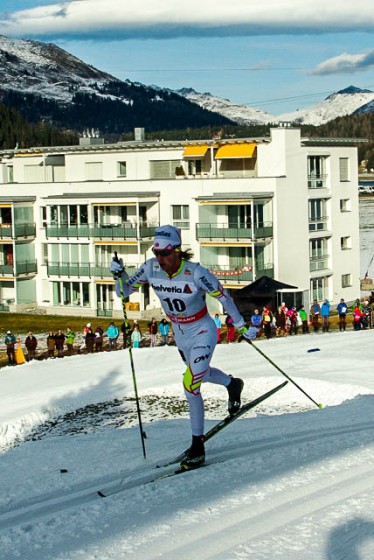
Though the 25-year-old Whitehorse native and national-development team member explained she prefers hillier courses — like at her training base in Canmore, Alberta — she added that she exceeded her own expectations on Saturday.
“I started fairly early, so I didn’t know where I was standing in the overall field,” she explained. “It felt really hard out there! … But today I felt strong double poling, and there was a lot of that on this course!”
She hopes to continue on what she considers a positive trajectory.
“I’m racing better than I ever have, so I’m very happy about that,” she added. “I think it’s just been a steady progression, and I hope it will continue that way!”
Also for Canada, development B-team skier Graeme Killick placed 41st (+2:08.0), for one of his best World Cup finishes after placing 39th in Toblach, Italy, in the same event last season and 40th in two distance races in Canmore.
In his first World Cup of the season, Kevin Sandau, of Canada’s development team, finished 70th (+4:07.4).

